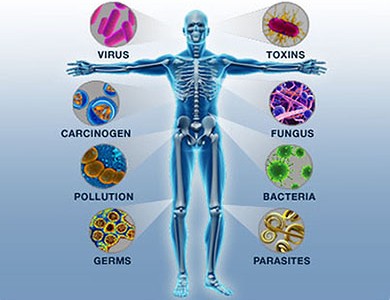– BENERJEE.P,
 |
| The cause of disease |
Some people are ever so busy in ascertaining the causes of the different diseases that they hardly find time to look to the more important part of their business as physicians-namely “cure”. For true Homœopaths, however, this is, to a large extent, waste of time and energy; and to some extent, it amounts to pursuing a wrong path, losing sight of the “Truth”. Various opinions have been expressed regarding the cause and origin of malaria. Some say that malarial germs breed in marshy tanks and ditches, and a kind of mosquito carries them into the human system, while others have discerned yet other causes by expensive and laborious researches. The Allopathic method of treatment is a method of treatment by contraries, and as such, these searches for ascertaining the cause of a particular disease may be necessary for Allopaths. But one who understands Homœopathy and has really entered into its spirits knows, that the cause of disease is not outside the patient, and that the so called external circumstance that immediately precedes the disease and looks like the cause is really an exciting cause only. (Mechanical injuries-e.g. burns, a fall from a tree or a cut in the thigh, are not diseases, properly speaking, as they do not imply any disorder in the normal processes of the organism, and as such, they are left out of our consideration here). The true cause of disease is in the patient himself. There are many in malarious places, who have been exempt from infection, and the cause of this should be investigated. The true Homœopath knows that Gelsimium will cure a case of fever, if the particular symptoms of the case are similar to the particular symptoms of the medicine, no matter whether the fever has been caused by malaria or what. But an Allopathic physician has to know that the fever has been caused by malaria, as in that case, and in that case alone he can prescribe Quinine for killing the germs. You are a Homœopath, and you do not gain anything by knowing whether the fever is malarious or not, as you cannot give any other medicine than Gelsimium, when it is Gelsimium alone that corresponds to the case. Your business is only to learn up the materia medica of the drug and to fit the drug to the patient. Your treatment is not according to cause (exciting) and you have no germs to kill. Of course, it is to be admitted that you too should have some knowledge of the external exciting causes, as these exciting causes have to be avoided for a prevention of the disease, though not to be treated.
There are other dangers, too, if, as Homœopaths, you do not take account of the internal cause, and worry yourself over the external exciting cause only. Suppose, a Gelsimium patient, who has been cured with Gelsimium, has a relapse after a short time, or suppose a Gelsimium patient is not at all cured with Gelsimium, you will be led at once to conclude that, for fever, there is no other medicine than Quinine-that in Homœopathy there is no treatment for fever, and so on. If on the contrary, you have understood the internal cause, and if you have the requisite insight, you will be able to discern that in the symptomatology of the patient there are indications of Psora, Syphilis or Sycosis, or of any two or of all the three of them, and that it is this internal enemy in the system that is either not allowing your medicine to act, or if it has acted, not allowing the action to be permanent. Then, you will be in a position to meet the situation with suitable anti-Psoric, anti-Sycotic or anti-Syphilitic drugs. If you have no knowledge of the internal cause of disease, and if you have not the insight necessary in such cases, Homœopathic prescribing is not possible.
Medicines, on the basis of the exciting cause, may be necessary at times-e.g. , cold due to swimming, diarrhœa due to night keeping, and so on. But in such cases, the exciting cause will be one of the symptoms of the case, and the totality of the symptoms, and not this one symptom only, will decide the selection of the remedy. It is no Homœopathy to prescribe on the external exciting cause alone.
Three things are essentially necessary for true Homœopathic prescribing -(1) The Law of Similars-“Similia Similibus Curantur”-(2) The minimum dose, and-(3) The application of only one medicine (unmixed) at a time. There are other things too, but these three are the most fundamental.